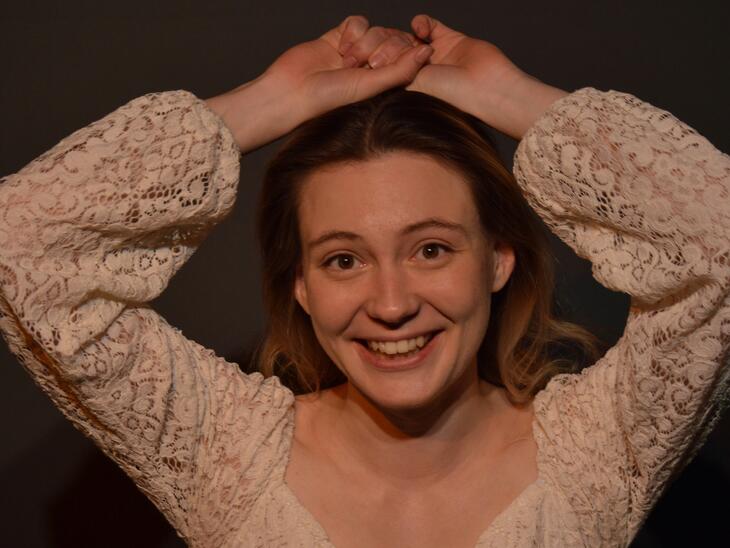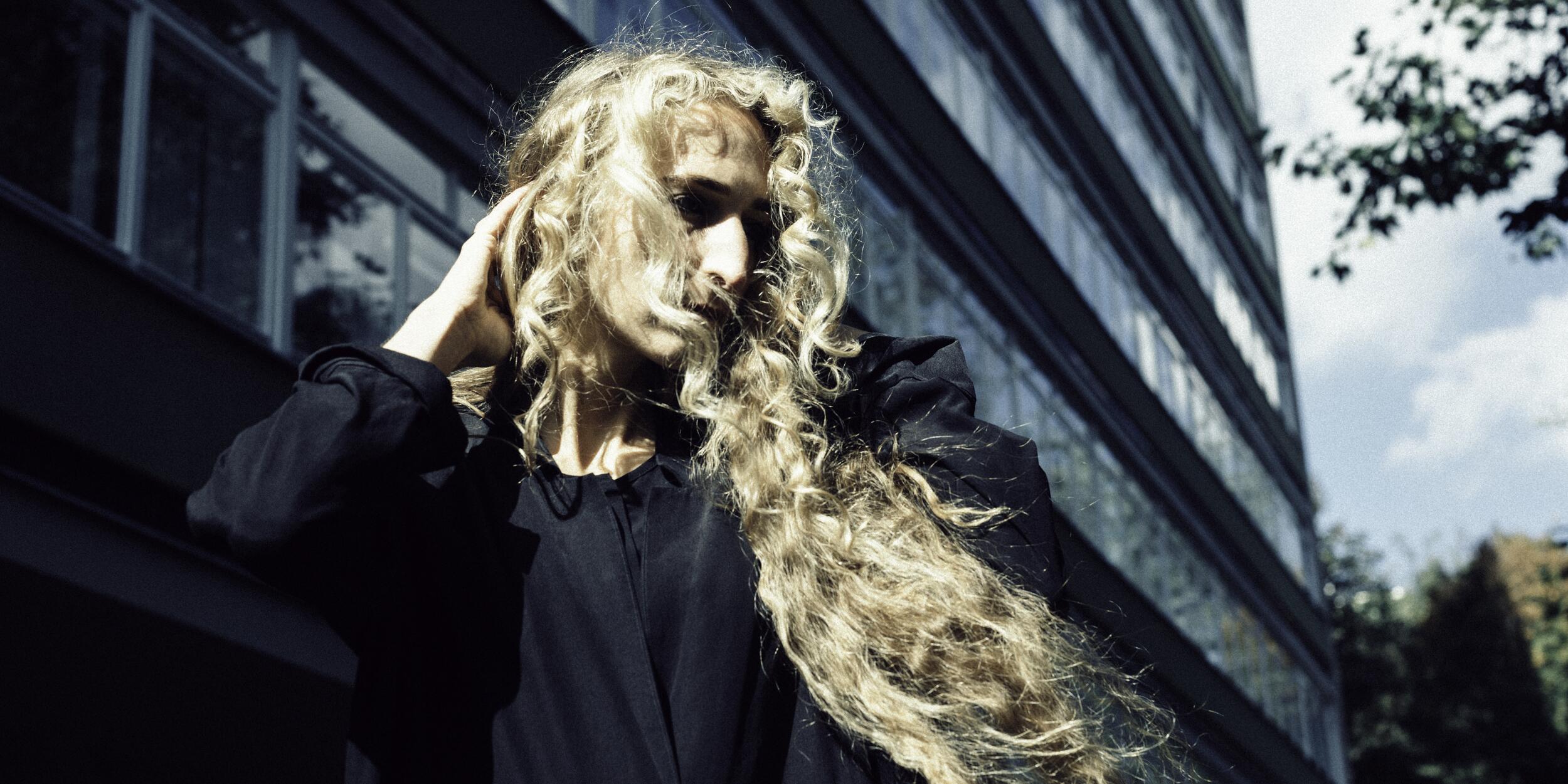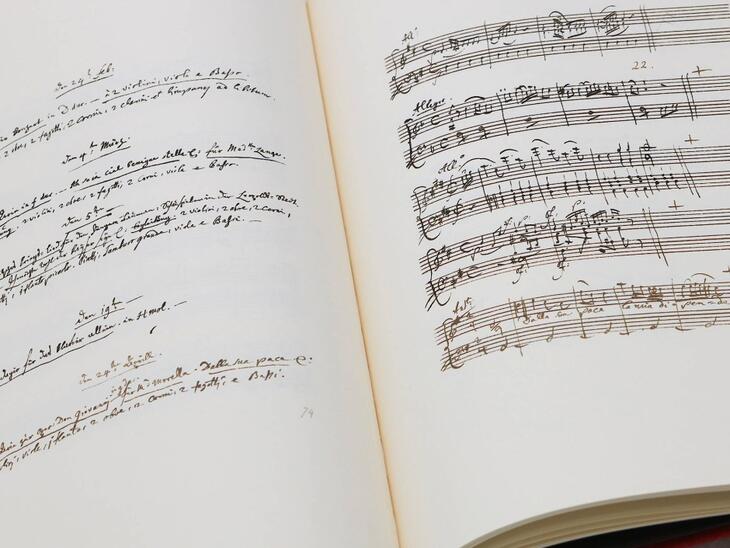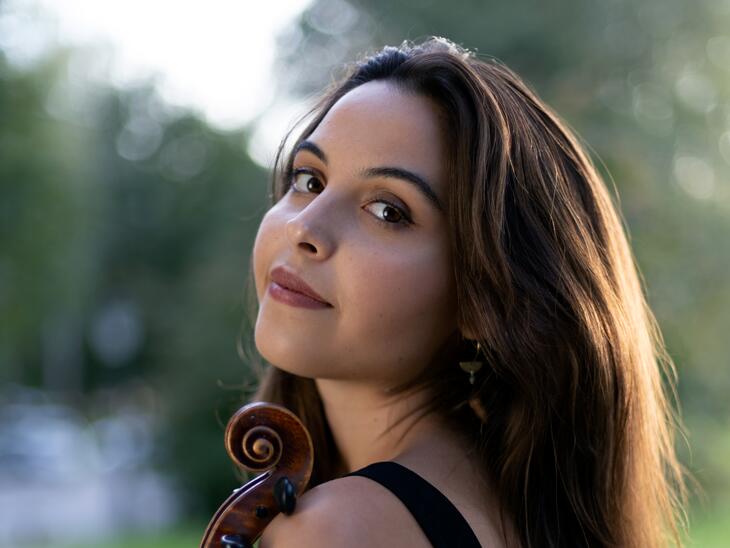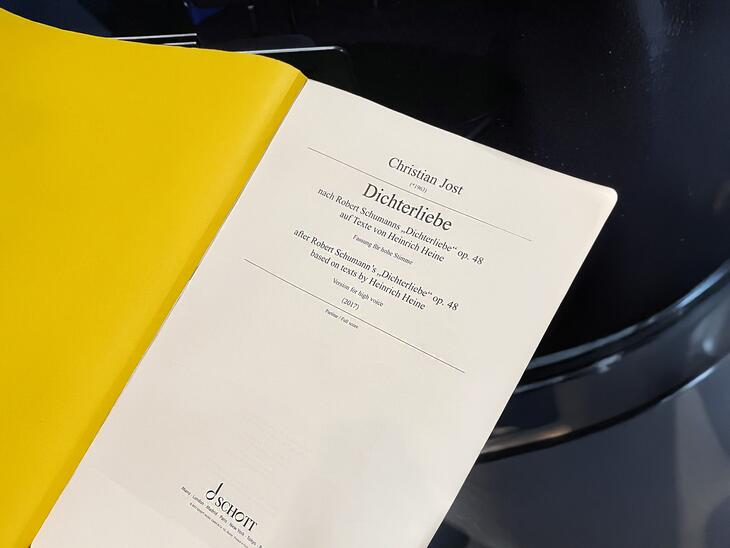Mozarteum: Your œuvre comprises around 150 works in almost all genres, you work with the world's most renowned ensembles and orchestras, have received numerous prizes and awards, and in 2020 were nominated for the Opus Klassik in the category "Composer of the Year". As if that weren't enough, your youngest of three children saw the light of day earlier this year. How do you do it? Sarah Nemstov: … perhaps the world also saw the light of this little person I'm holding in my arms right now. The children definitely give me strength for the work and "ground" me in a way. Of course, you have to be structured and every day has too few hours, but I'm sure many people feel that way. Earlier this year, your work "Tikkun" was premiered under the direction of Emilio Pomárico with Ensemble Nikel and Ensemble Resonanz for the 5th anniversary of the Hamburg Elbphilharmonie. Tikkun olam' means "healing" or "repairing the world." What are you alluding to? "Tikkun" is the last part of an unfinished, full-length tetralogy for soloist ensemble and orchestra on mystical ideas of creation in Judaism; part three is still missing. Each of the four parts is linked to a concept of kabbalistic world-creation myths: reshimot - imprints, sh'vira - breaking, k'lipot - bowls, and tikkun - healing. Simply put, the first three parts negotiate aspects of the primordial catastrophe of Sh'virat hakelim , the breaking of those vessels that were intended for the divine light but could not hold it because it was too strong. Shards and sparks sink into the material world and with them comes life energy, but also evil. Only duality makes free will possible. Tikkun olam as healing the world is an important ethical principle in Judaism and an essential task of man. The divine sparks must be sought out and the cracks mended - a process in which each and every individual is called upon to participate. I find this idea very modern and current. Acute also for our society. do mystical ideas play a role in your work in general? Overall, the mystical is relatively new in my work, in contrast to other Jewish themes that run through my catalog raisonné. It is the abstract and, in a sense, hermetic nature of the mystical that fascinates and inspires me. Making certain notions or ideas resonate is fruitful for me, as these notions form a counterpart for me. It leads me to things that I might not have come to otherwise. Literature can also be such a counterpart. you mean thoughts by Walter Benjamin or Paul Celan, Emily Dickinson or Virginia Woolf, with whom your works are repeatedly associated? Exactly. There are often books that accompany me, authors who are important to me for a while. They, too, form a counterpart that I sometimes consciously seek out. The texts can help color or shape a composition. For the audience, this doesn't necessarily have to be transparent or understandable; it's more important for my creative process. I also preface almost every score with a sentence by an author, which opens the door to a piece like a kind of handle. Sounds are hard to put into words, literature can give further associative spaces. Forever - is composed of Nows - 'Tis not a different time - Except for Infiniteness - And Latitude of Home - […]. You weave these lines of Emily Dickinson into a text about the portrait festival Les Amplitudes, which put its focus on your music for five days this year. What was that like for you? Les Amplitudes was a very special experience. It already started with the discovery of the place La Chaux-de-Fonds 2021, which I immediately fell in love with - the streets, the houses, the atmosphere, the air and the beautiful landscapes. The invitation to the festival was, of course, a great honor. Five days of concerts and events largely focused on my work - there were works for string orchestra, ensemble and chamber music in various instrumentations up to solos, there was a project for young audiences, an installation, a film, a liturgical work performed in the old synagogue of the city and a festival with a lot of "noise" at the end. All this was a dream and a great gift! At the same time, I have to admit that there was also something scary about it. I have never heard so much of my music in such a short time - it's like being in a hall of mirrors. (laughs) A Latitude of Home? Yes, also. But above all I mean the form of the festival, which creates a home for the music. A space where we can live and meet, discover and discuss, listen and celebrate. And indeed, very many beautiful encounters resulted - not only with the musicians and the great organizing team of the festival, but also with a very diverse audience, which also consisted of residents of the city who were simply curious. There is a hunger for special live moments. One of your recent instrumental cycles is titled "House." The spectacular scenic premiere took place in a turbine hall with a direction and video work by Heinrich Horwitz and Rosa Wernecke as part of the Ruhrtriennale 2022. How closely is New Music interwoven with other arts? Like everything else, New Music has become very multimedia in the 21st century. New music is no longer just an acoustic experience on a concert stage. It often explores other venues, seeks other formats, works multi- or transmedially and thus per se with other arts…with video, electronics, installation, light, text and everything else that goes with it. For artists, the first question is whether they are technically capable of doing all this themselves without being dilettantes. Or whether one should collaborate with others, perhaps even form a collective. There are many collective formats now, which I find very nice. And to create something together is, in a way, also a political statement that moves away from the idea of the individual artist or the genius. Of course, in the end it's also a question of type. I value collaboration with others very much, because it inspires me and in this way works come into being that I could never have created on my own, yet when I write music I have to be for myself… Today you take up your professorship in composition at the Mozarteum University. Was the interdisciplinary nature of the university, which unites all artistic disciplines under one roof, appealing to you? The Mozarteum is an incredibly great institution that I first heard about as a child. When I was twelve and once spent a day in Salzburg, the Mozarteum was already floating around in my head - even then I had the dream of becoming a musician. Anyway, it is something very nice to be here now and I am happy to have been awarded this position and the confidence that comes with it. I also feel that now is the right time. Simply because I have arrived at a point where I can also give something back. The interdisciplinary nature of the university is great because it opens up many opportunities for students to look beyond their own subject and perhaps grow beyond it. In any case, I would like to pass on to my future students to believe in their own dream and to follow it, to trust their own strength and also their ability to work, not just their talent…and to be courageous! Vision, trust, diligence, courage - always in a different order perhaps. Sarah Nemtsov's new opera "Ophelia" (2020-2021), with a libretto by Mirko Bonné, will premiere at the Saarländisches Staatstheater in 2023. She is currently working on the opera "WIR" based on the novel by Yevgeny Zamyatin, among others. The world premiere is planned for 2024 at the Dortmund Opera.
